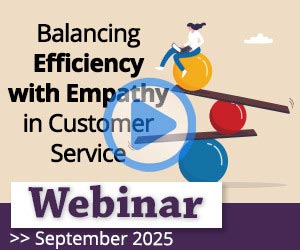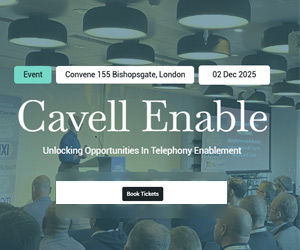We often get asked this question – what is it really like working in a contact centre?
We commissioned four young journalists to investigate. The findings are surprising.
Despite the modern sweatshop image, our reporters found a work hard, play hard environment, with rewards, job satisfaction and even love!
Following the stories that the journalists produced, we provide you with a list of key things to know about a call centre.
The Untold Truth of Call Centre Life
Behind the negative stereotype there’s a secret satisfaction to call centre life.
Call centre employees know something most people don’t. A dirty little secret that some of them keep from friends and family.
Something that people who haven’t worked in a call centre can’t understand, or won’t believe. But sooner or later, many call centre staff let someone in on their secret. It’s really quite simple.
Many Call Centre Employees Love Their Job
They don’t feel boredom or monotony. They aren’t upset by angry customer complaints. They don’t even feel that their work is pointless. To them, the stereotype of a call centre as a dull place to work is nothing like their own experience.
“Calling the Account Managers to tell them about a lead is like telling a child that tomorrow is Christmas Day,” says Gabrielle Deschamps, 22. Gabrielle works for an international telemarketing agency based in Bournemouth.
“I do business development for Dell, calling companies in France to talk about the virtualisation of their server and storage systems. My job is to find leads, and it is very interesting because I’m speaking to the IT directors of the companies I call.”

Speaking to senior staff at a range of companies makes Gabrielle feel that her work is valued. It also uses her language skills. Born in France, Gabrielle speaks both her native French and fluent English. In an increasingly globalised business world, many telemarketing and international companies rely on multilingual employees. Call centre workers with a second language alongside English can often find themselves earning a good wage in a job that values their skills highly.
Sales agent Nick Upton, 24, finds his personal interests help him to do his job at the Dixons contact centre in Sheffield. Like Gabrielle, he appreciates the value his employer places on skills and knowledge.
“I’m interested in technology and in this job I talk people through the details of laptops, televisions, stereo equipment and all sorts of electrical goods. I’ve gained a great deal of knowledge and I enjoy helping people improve their work or leisure time by choosing the right product,” says Upton.
Creating a good working atmosphere has long been a key part of a call centre manager’s or supervisor’s role. Most call centres have their own motivational games and internal competitions to keep staff productive and relaxed. To outsiders, these can seem silly, but managers use them for a reason. They work.
“I really enjoy the competitive side of my job. Being in sales means the rewards and bonuses are very good,” says Nick.
“This is the first call centre job I’ve ever had and before I started I thought I would hate it. But it’s enjoyable.”
Before working at the Dixons contact centre, Nick thought call centre work would be all about hitting harsh sales targets set by management.
“In fact, it is quite laid back. There are targets to hit, but I take inbound sales calls, so half the job is already done by the time the customer picks up the phone.”
Check out the response to negative contact centre stereotypes in the piece: Are You Proud to Work in Customer Service?
Of Course, Every Job Has a Downside, and Call Centre Work Is no Exception
“I do speak to the odd grumpy person, but most people are willing to have a conversation at least,” says Gabrielle.
Many call centre horror stories feature angry customers venting frustration at faulty products or bad service. In reality, such calls are in a minority, and complaints department staff are specially trained in how to deal with problems.
“It can be quite funny to listen to an angry customer sometimes. Someone having a rant cheers me up if it’s been a hard day. It does throw them a bit when I just agree with what they say and pass them through to the complaints department,” says Nick.
Here’s our advice on: Dealing with Angry Customers
But Most People Love a Good Conversation

Call centre work is communication, and talking to a diverse range of people can be incredibly satisfying. Whether it’s a great group of colleagues or the chance to have friendly conversations with customers all day, every day, ultimately it’s people that make a workplace into more than just somewhere to grind out a living. The mixture of people employed by large call centres can also make colleagues into lasting friends.
“It’s the people I work with that make the job so enjoyable, and I have some great colleagues. But that’s because they too are happy in their work, and the atmosphere around the office is jovial and fun,” says Gabrielle.
Some people even find love. Just like Gavin and Stacey in the BBC comedy of the same name, telephone flirtations can lead to romance. Earlier this year a poll commissioned by Lloyds Pharmacy found that call centre employees were more likely to have had an office relationship than workers in any other job.
Out of 3,000 people surveyed, 29% of those that worked in call centres said they had shared an extra-special connection with a colleague. Finance and HR workers were next on the list, with 28% and 26% respectively admitting to a workplace fling.
An open-plan office can certainly be perfect for making eyes at a cute new colleague or casually flirting with the boss. Many call centres have large staff and organise works social events, always a great time for mutually attracted co-workers to finally cop off. Of course, the office gossip grapevine is sure to spread word of any romance around long before the lovers arrive at work the next morning, whether together or separately!
For more on this topic, read our piece: A Simple Way to Improve Communication in the Contact Centre
Office Gossip
Provides a never-ending supply of amusing anecdotes for happy call centre workers to share with friends who doubt the fun side of the job.
“We get people calling up and asking for dooooves (DVDs) and lucitvs (LCD TVs), like on the Fonejacker TV show. It’s not annoying at all. We’ve all done prank calls when we were younger so we just humour them and act like we know what they are talking about,” says Nick.
“And although I’ve never encountered him, there’s also one guy who calls the contact centre whilst, ahem, you know what.”
Now that is a dirty little secret.
But, what should you do when office gossip goes to far? Find out our advice in the article: How to Curb Call Centre Gossip
By Matthew Brown
Student Work in Call Centres – What Is It Like?
It’s not exactly the first thing you want to do after finishing a long shift but, only an hour after returning home from work, Richard Thompson welcomes me into his student house with a warm smile.
The 22-year-old is currently studying to be an accountant at university but I am more interested in his part-time work.
Richard works at a call centre in Cardiff and, unlike the majority of students and graduates who are struggling to find work, he is thriving.
Firstly, I needed to find out about Thompson’s duties in his current position. “After my employers realised that 90% of calls put through to stores were not being answered, they decided to set up the call centre in order to deal with more queries and to be able to supply an improved level of customer service,” he explained.
“After my employers realised that 90% of calls put through to stores were not being answered, they decided to set up the call centre in order to deal with more queries and to be able to supply an improved level of customer service”
Richard Thompson
Richard worked in a local convenience store after finishing school and it was his first real taste of employment. However, after being accepted on his university course, he decided to try for something more challenging and successfully applied to work in the call centre.
Call Centre Work
That was two years ago, and I quizzed him on what type of skills he felt he had acquired and developed since joining the call centre.
“Firstly, my negotiating and interpersonal skills have really developed as most of my duties involve dealing with customers in a courteous and helpful manner.”

“I have also improved my problem-solving skills. There are so many situations where there isn’t a clear solution, therefore I am often required to think on my feet.”
“Thirdly, I would say that I have improved my team-working skills as I often assist my colleagues with queries and I also seek the advice of other members of my team. With around 850 members of staff working at various times, there’s always someone there who is ready to offer support!”
Having mentioned team working, I asked him about the opportunities he had to build relationships with his colleagues.
“I found it very easy to make friends, and after a few months I knew about half the staff! There are also lots of different staff working there, young and old, men and women, people of all races and religions – it really is diverse, which is great!”
Thompson continued, “The staff facilities are also quite impressive. When you’re on your break you can either go out for lunch or use the in-house facilities such as the pool table and TV room, so you can catch the FIFA World Cup if you’re really lucky! It means that you can make friends at work in a relaxed environment, which is tremendous.”
Yet, whilst many of the roles in the contact centre would be agent positions like Richard’s, there are many others. To find out more about these occupations, view our page on: Typical Roles in a Call Centre
Rewards
It is obvious that Richard enjoys his work. Also, compared to his last job where he received the minimum wage, he is well rewarded.

“My wage is fantastic and because I work weekends I am on a double-time rate. There are other benefits too, such as free shares and discounts on products. You feel like you are being rewarded for your hard work, which is important.”
“There are also awards and achievements, for example employee of the month and rewards for positive customer feedback, which also contributes to your drive for success.”
Even though it is late on a Saturday night and he has just finished a 10-hour shift, his enthusiasm shines through and he explains that his current shift pattern helps him to balance his academic studies and social life.
“One thing that has really impressed me is that they have student shifts which cover evenings and weekends. This is an indication that the company is aware that everybody is in a different situation and that they are prepared to cater for our needs.”
Here are some examples of reward schemes to implement in your contact centre: 14 Ideas for Your Team Incentive Programmes
KPIs
One thing he does emphasise is that whilst he is happy in his current position, he isn’t taking it easy.
“There’s no room for complacency in my position and you are always required to work hard. Everybody has KPIs (Key Performance Indicators), which are statistics that measure your performance, for example average length of call, your availability for calls and work attendance.”
“I think it’s a good thing,” he added. “It is a clear indication that everybody is working to a high standard. It also means that if you hit certain targets you are eligible for benefits and bonuses.”
“If your statistics are low, you are trained in the areas you are struggling in so there is also plenty of support on offer that can further develop your skills.”
For guidance on which KPIs your contact centre should be using, read our piece: Twelve Call Centre Metrics You Can’t Live Without
Other Roles
Whilst I understand that Richard is happy in his current position, I am keen to find out whether there is any capacity to progress within the organisation.
“I’m actually applying for a new position at the moment – a real-time analysis role,” he stated.
“This is a more technical role which studies the statistics of our team members and forecasts the number of calls the centre will receive in the coming weeks.”
“I’m hoping to get the position as it is something I have not yet experienced and it will equip me with a greater range of skills.”
Finally, my thoughts turn to whether he would advise someone else to apply for a position in a call centre.

“Would I recommend it?”, he asks whilst rubbing his chin in a contemplative manner. “I know that to work in our centre you have to be of a certain standard and I’m sure it is the same in other centres.”
“You have to be prepared to work hard, be able to adapt to difficult and stressful situations and show initiative. You also need to be cool, calm and collected and not get discouraged by the odd ‘difficult’ customer!”
“The position has its positive and negative aspects, much like any job, but if you work hard then you are rewarded accordingly.”
“Working in a call centre certainly suits me and if you are looking for a challenge and an interesting work environment, then I would definitely recommend it!”
To find out more on career development, visit our page: Progression in a Contact Centre
By Dewi Griffiths
Graduate Employment in a Call Centre
A growing number of graduates are turning to call centre work in a bid to give their career a flying start – as well as reduce that graduate overdraft, of course!
Getting that foot in the door is more vital now than ever as the recession bites particularly hard for graduates. With the number of students graduating steadily rising and the graduate job market shrinking, the sector has become somewhat unbalanced. Recent studies have shown the average graduate job is now attracting more than 100 applicants for each position.
Having had first-hand experience of both industries, I can conclude the old adage of it being who you know is also dead in the water. So, no quick fix there either, I’m afraid. Unless you’re one of the chosen few that get through the rigorous recruitment process and scoop that gold-dust-like graduate job, the only way to get ahead now is hard work.
Call centres provide a good way of getting a great overview of a company and its operations, and the results can really pay off. Handily, two of my good friends from my call centre days have used the basis of my theory to prove my point.
Call Centre Employment
Adam just graduated from the University of Manchester and Jim from Portsmouth. We were taking calls for various companies, including Dell, Texaco and The Royal Mail, to name a few. I’m not sure their degrees in Sports Science and Forensic Biology were entirely utilised, but they were working, and that’s half the battle when leaving uni.

We were all on the frontline, as it were. You quickly build friendships in the hustle and bustle of a busy contact centre and rapidly learn to rely on each other’s experience and knowledge as well as your own.
It really can be physically, mentally and emotionally challenging. Long night shifts in the depth of a dark winter can be lonely without a friend to get the coffees in, early morning shifts can be busy and testing without a friend to get the coffees in, and the mid-morning lull before the lunchtime storm can be tough without a friend to get the coffees in. Adam and Jim were my (coffee) drinking buddies.
There is, however, a sense of camaraderie in this line of work. You have to think on your feet and remember your training. I like to imagine it is a lot like being a soldier, but with less camouflage and gunfire. And more coffee.
Anyway, my point is that you can really develop yourself both professionally and personally in this environment. You now have a demonstrable ability to work in a team. You may have done a presentation at uni and cited it as an example of teamwork in every interview you have been turned down from, but you now have real-world team-working experience. You can’t get by in this industry without it.
You can gain this experience by working efficiently as a team towards certain goals. Follow the link to find out the: Top 10 Contact Centre Goals
Enhancing your CV
How about an example of how you have effectively used communication? How you resolved a conflict? How you went out of your way to help someone? Check, check and check. What we quickly learned is that a call centre is a great way to enhance your CV and push on. It can be a fun place to work but also provides you with so much more.
Another great advantage of working in a call centre is that you really can get an oversight of the whole company. CEOs of multinational brands go undercover and back to the “shop floor” for TV programmes to get a feel for their customers, brand and staff; you’re already in a perfect position to get a flavour of all of these.
In fact, you can’t help but take it all in. It wouldn’t make for as interesting a TV programme, I guess, but they could just ask their call centre staff…
Taking this experience on board, Adam has since left the call centre to join a national wine retailer and is currently an area manager for the firm. His career has soared majestically.
Jim progressed within the company to Account Manager, and since then, Account Director. He gets the best of both worlds, full interaction with both the end customer and staff.
Because he’s been there, done it and got the call centre T-shirt, the staff appreciate him and know he’s not guessing his way through the day. And, from his point of view, he knows what to expect and what the pressures of call centre working can be.
This overview of the business and lessons from the ‘frontline’ prevent him from placing unreasonable demands on his staff. As a small aside, Jim owes more than his career to the call centre; “I think my life and my son’s life would have panned out slightly different if I hadn’t met his mother there!”
For help writing your CV, read our article: The Top 25 Words to Use on Your CV
Graduates in the Call Centre

Graduate trainee schemes are tough to get on to but you can fulfil your journey to the top if you tailor your own scheme in a call centre. It can be hard work but, from experience, it is better to be working hard than waiting for a trainee scheme that may never materialise.
The modern call centre has shelved its former image. They are nice places to work, and the unionisation of the industry is also a bonus. But above all, if you treat the experience correctly, you can learn and progress.
You’re not just taking phone calls; you are networking, managing customer accounts, training others and developing your own skill set that you have spent so much time fine-tuning at university.
The rewards are there too if you choose to progress up the call centre ladder. Team leaders in a call centre earn on average £5k more per annum than retail managers and you don’t have to put up with huge deliveries or January sales! Been there, done that too…!
So before you think about waiting for that graduate scheme, taking that job down the local pub or working for minimum wage in a shop, you may want to consider work in a call centre.
By Tom Waller
Observations of the Contact Centre Floor
Every person will have their own idea of what working in a call centre is like, whether they have worked in one or not.
Of course, most of those opinions will be based on horror stories passed on from friends of friends; tall tales of disgruntled customers and unachievable selling targets. But, these stories are the ones that are told and retold – no one’s interested in a work anecdote that has no drama.
So, what is it actually like to work in a contact centre, stripped of all the exaggeration and rumour?
What it really comes down to is communication. Talking to people from every economic background and walk of life.
Going to Work to Help to Improve Somebody’s Life
Brendan, who works in a council housing department in Norwich, feels that his job is all about helping people. “Tenants call in frustrated and annoyed – their roof could be leaking or their light switches not working.”
“It’s my job to get these problems fixed as soon as possible. People start phone calls angry and frustrated, and finish them calm and happy. It’s nice to know I helped to improve someone’s day.”

What many people forget when thinking about contact centres is that all the job boils down to is two people talking to each other on the phone.
Brendan recalls one poignant example when this occurred to him; “Many of our tenants are vulnerable people, the elderly and disabled; you may be the only person they will speak to that day.”
“I had a call from one woman who had suffered a spinal injury which resulted in her being less able to leave the house.”
“The call started with a request to fix a cupboard door and quickly escalated to her breaking down in tears and confessing I was the first person she had spoken to in three weeks.”
“We talked for a while about her anxiety and feeling of isolation. Thanks to the great support network in the call centre I work in, I was able to stay on the phone to her and organise for a social worker to pay her a visit that afternoon.”
Not all of us can say that we went to work and helped to improve somebody’s life, but Brendan’s story is a perfect example of how contact centre work is far more than disgruntled customers offering you verbal abuse.
Problem Solving Is Key to Many Contact Centre Roles
Obviously, all contact centres are different and it’s quite hard to help someone with the deeper things in life when all they really want is for their computer to work.
Freya, a student from Exeter, works on the Dell helpdesk and sees her shifts as a day filled with technical and organisational challenges. “People assume my job is boring and I just get the same calls day in, day out, but really, every call is a different challenge.”
“Three people might call in with the same problem but those people all have different levels of knowledge and ability. It’s all about trying to find a way to communicate a solution to people and talk them through what to do.”

Problem solving is key to many contact centre roles, whether it’s finding the best way to pitch a product to a caller or finding the most imaginative ways to say “have you tried turning it off and on again?”
Freya believes that it is this that keeps most of her colleagues happy in their jobs. She says: “Pretty much all of us started the job thinking that it was going to be a quick stop until we found something better, but we all discovered that it was the most interesting role we have had.”
“Unlike other jobs my university friends have, I get to use my brain and develop new skills that will help me to progress my career in the future.”
Whilst working in her role, Freya has developed skills in communication, problem solving, organisation, and customer facing, all of which are vital to higher-paid jobs.
For Every Hostile Caller There Will Be Many More That Are Grateful
So, it seems that although the majority may consider call centre workers to be shells of people slowly being worn down by torrents of verbal abuse, they do, in fact, like their jobs.
Of course, not every day can be perfect, and some people may not fully appreciate the help they are being given. That is the price of communicating with people. But, for every hostile caller there will be many more that are grateful.
Far from being solely target driven, the employees I have spoken to find that the goals they are given are a great way to help them push themselves to do better and, unlike other jobs, personal improvement in a contact centre gets rewarded with generous benefits.
Next time a contact centre worker expresses to you how good their day was, maybe you should believe them. After all, their roles are varied and challenging, and they actually get to directly help people. How many of us can say that about our jobs?
By Christine Emmerson
[But, for when you do come across a hostile customer, here is a handy list of: The Right Words and Phrases to Say to an Angry Customer]
Key Things to Know About a Call Centre
Every contact centre is different, as if you work for a charity handling inbound calls, life is going to be very much different from that of an outbound telesales agent. Here are some of the things that you will need to know.
Every contact centre revolves around six key fundamentals:
Key Components of Operations
- Customer
- Technology
- Process
- People
- Finance and Business Management
- Location, Building and Facilities
Each of these six components has a direct link to the others, meaning that if one fails it has a direct impact on the other five, significantly damaging the company behind the contact centre.
For more information of these fundamentals, visit our page: Key Components of a Call Centre Operation
The Essentials of a Good Call

When it comes to queue time, call resolution and agent behaviour, every contact centre has its own set of targets to improve the customer experience.
Whilst queue times are not under agent control, a contact centre employee should expect there to be a set of measurements in place to monitor performance and games/incentives run to boost results.
To Find out what makes a good call, read our article about good call experiences What Makes a Good Call
The Focus on Productivity
According to our 2016 survey “What are Contact Centres Doing Now?”, 80% of industry managers find that their allocated budget is holding them back from running their dream contact centre.
This highlights how money is restricted in the industry and is causing contact centres to make the most out of limited staff numbers. This equates to a strong focus on productivity.
Rapport and Empathy Building Will Always Be Important
The central element of any customer service call is rapport, as this will help to sell, when working for a telesales company, and build the customer experience, if otherwise.
In addition to this, agents should expect there to be a focus on empathy, as this is what will help to establish a connection with the person you are talking to.
Click on the link for: 18 Empathy Statements That Help Improve Customer-Agent Rapport and the Best Tips, Phrases and Words to Use for Building Rapport
Questions to Prepare for in an Interview

Customer service interview questions will mostly resolve around the same topics, in order to test communication, listening and motivational skills.
So, potential agents should expect to be working alongside people of the same ilk, usually extroverts, who are good at controlling a conversation. After all, this is the kind of person that the interview process will be designed to find.
For examples of questions that you can expect to hear in this process, visit our page: Top 50 Customer Service Interview Questions – with Answers
Originally published in September 2010. Recently updated.
Author: Jonty Pearce

41 Comments
-
Great post! I was just bemoaning the fact that the blogosphere and twitterverse is overpopulated with angry and disgruntled CSRs who rant, while my experience is that most CSRs are pros who actually enjoy what they do.
Thanks for offering a great, positive perspective!
Tom Vander Well
29 Sep at 18:05
-
Reading this makes me slightly happier, knowing there are people that do enjoy working in a call centre.
But coming from a small call centre (3 staff…..) we don’t get incentives, don’t have targets, can’t go for coffee together etc. It kinda sucks!
Jackie
30 Sep at 20:48
-
I think these articles were written by managers of call centres. Call centres = micro-managed, disempowered scrutinised employees. This work model does not work for anyone. Call centres do not encourage thinking. Call centres are ruled by absurd measures that do relate to good client care. I really think company’s need to think outside the square with call centres and start empowering staff.
Natasha E
8 Jan at 02:26
-
Interesting spread of viewpoints!
Natasha, Just one comment. The articals were written from interviews with staff, not as a PR exercise by any centre. The “micro-managed, disempowered scrutinised employees.” may be from your experience, but, that is not a blanket catch-all for EVERY centre.I’d have a look at a couple of the other articles on the site here, There’s one in particular that refers to that specific issue, and, looking at what happens to the customer as a priority over any ‘tangible’ empirical measures.
I’ll quite happily declare an interest here. I’ve been in the industry for nearly fifteen years now. Starting out on the phones, and, am now on the forecasting and planning and reporting side. In that time I can count on the fingers of one hand the number of ‘Managers’ who’ve micro-managed, stending over their teams, pushing for the next call to be answered faster… None of them are still in the trade! Conversely I know a lot of agent’s who’ve been in the role or trade for years. Where I am currently we have an average length of service of over seven years. That wouldn’t happen in the environment you describe.
I’m not saying you’re wrong, your view and experience is totally valid, just that there are other perspectives as well..
Regards
Dave Appleby
8 Jan at 10:07
-
Interesting articles and comments. Like Dave I’ve been in the industry for some time and started out on the phones before progressing through the various roles (Team Manager, Data Analyst, Planning Manager etc) before becoming the Centre Manager a few years ago.
Right now our focus is on engaging more with the customer and providing a quality service. To help this along we recently removed our AHT / Calls per hour targets from the KPIs of the frontline Advisers and Team Managers. This was done to give them as long as they need to deal with each customer enquiry in order to increase customer satisfaction and eliminate needless repeat contacts.
Call Centres as described by Natasha existed in the past and there may be some still around now however I don’t believe they are in the majority.
Ultimately happy staff create happy customers.
Chris Watson
8 Jan at 15:17
-
I walk at a call centre, we call for charities, to fund raise for them. ;] I love my job, I love the people and I love the customers for the most part. They’re all very lovely and it’s fun to engage with them and have nice conversations about that which is the topic of interest – the cause they’re donating to, or just bits and pieces of their lives. I love the hours too because I start at 3 and finish at 8:30 so it means I can sleep in. 😀
x
21 May at 04:21
-
It takes a special kind of person to enjoy the work of a typical call center. You have to enjoy being treated like a child, abused, belittled, managed like a robot, and always counseled as to what you are doing wrong versus what you are doing right. I have worked in call centers off and on for years and I am now ready to put it all behind me.
What is described in these stories is the exception rather than the norm. There are folks who do enjoy these jobs, but these people, I believe, are folks who have convinced themselves that there isn’t something better out there for them. You are groomed and trained to accept settling for less. The pay and benefits can be good, but the stress can be damaging to your health and your relationships.
The motivational activities at many call centers remind me of being in elementary school. People are rewarded with little tokens of fake appreciation. Call centers are famous for encouraging kudos among its employees. If you get a kudos, you should feel special. But you’re not. You are just another cog in the wheel, expected to not complain and enjoy your restroom breaks being micromanaged. Some call centers give more flexibility, but many do not because of contractual obligations to satisfy service levels and meet metrics-related goals.
The nice caller exists but more often than not, you get a frustrated, demanding, entitled caller.
There is room for advancement and growth, but like many places of business, it often depends more on who you know and who is kissing whose behind rather than the skills you can bring to a position. You can get promoted after years and years of being on the phones, but by then you are just another call center drone.
Dee
26 May at 15:52
-
After reading through this article and it’s comments I can establish that call centre work is not for everyone…
You will have to work hard, be focused and up to date on company policies, special offers and more.
You will have to take criticism constructively so you can improve and work productively
NOTE:-(if you cant take being told what your doing wrong, then you will have trouble being employed anywhere… even min wage jobs, call centre’s especially)
Working in a CS will be both challenging and rewarding, staying focused is key though they often have great staff facilities like leather seats, big tv’s or a pool table etc(went to British Gas, great staff, great managers and the best staff room you’ll ever see)
Though if you are looking for work, with no or few qualifications and the best you can get is a minimum wage job? really try for a call centre
(i’m stuck with a catering agency at min wage for incredibly hard work and stupid hours, often not getting work some days/weeks)
I will be learning and training myself for such work, so when i re-apply to british gas the tests will be simple and il be getting much greater rewards with a great deal more responsibility and self satisfaction!
Andy
30 May at 04:51
-
hi,
i worked at call center during a low employment period. although the experience was overall positive, the reason i got let go for was not. this was Eddie Bauer catalog sales where you followed scripts to take VISA orders. I did this just fine. however, after being there for a couple months the employers added something to the requirements; you have to sell X amount of ‘weekly specials’ each week. if you don’t, you will be let go. why punish someone if they are just taking care of customers with what they actually ordered and not forcing them to buy more?? sure this is good for the company, but NOT what the customer called to buy! this is a BAD practice in my opinion, getting grilled by a call center person to buy this and that is STUPID practice and should not be tolerated! anyhow i do all my buying online and haven’t had to deal with call center cold calls since then.
my 2 cents
Mr.Pibb64
3 Jun at 16:59
-
Couldn’t have put it better myself Dee, the way you describe call-centres sounds exactly like the one I have recently left. The stories above would portray a true image of call-centres for certain people working in them of course but I don’t believe it would represent the majority. Call-centres seem to hate their reputation of having a high staff turn-over but does this not tell them something about their working environments?
My experience involved inbound calls and basically repeating myself anywhere between 70-100 times a day while constantly being reminded of my targets. When I say reminded what I actually mean is being reminded that they will sack me if they don’t improve! This you might think is acceptable as we all work in jobs with certain pressures and I agree, however my targets were actually detrimental to the experience of the customer calling me.
Call-handling time for example – they wanted me to only have the customer on the phone for a certain time. But when the customer is calling me and wants to talk through their query, concern or sale why should I be punished for how long that call takes? Another was wrap time – this was the time I spent on the system dealing with back-office queries, all with the ultimate goal of resolving the customer’s query or concern. However I was punished for not meeting the wrap target even though I was actually doing one of the most important parts of my job? This was simply because I was not available to take a call which I was then under pressure to finish asap. The complete madness of the working environment I was in seems funny now but at the time all I wanted to do was to throw my headset down and walk out.
Of course some people are going to be happy in that stressful and target-driving environment but I wasn’t and I can tell you a lot of my colleagues were not either and all are actively looking other employment. I hope now I have put call-centre work behind me for good.
Rob
28 Jun at 18:33
-
Well you’re obviously going to find alot of current CSRs enjoying thier work.
I mean how many people have had experiences like me where they work for a delivery service or an isp as outsourced call centre work where you are only allowed to put (genuine and backed by the companies own Data) tickets in for reimbursement and the company rejects then without reason.
If you work for an ethical company that gives you the discretion to return peoples money when its being taken in error then yes it might be satisfying.
But that is like saying living in an autocratic dictatorship would be better that a modern democracy if the leader was both extremely competent and well-meaning. Its obvious.
But to get that ‘dream job’ is hard. Most people that do CSR work do it because they can’t get a job anywhere else.
They are given randomized shift patterns. Long term temporary contracts so they can fire you for not taking overtime, or having a sick day when the weather is literally ice age and disrupts/annihilates the transport infrastructure forcing employees to walk to work in blizzards and thus get sick..
Most people getting fed into contact centre work are working in high turnover centres. DO NOT BE DECEIVED the people that find themselves ‘loving’ their jobs are holding those spots.
If you find your way into the system as your first job with little or no experience you will be taking the place of someone that quit or was fired because of angry (and completely correct in most cases) customers getting to them or not taking voluntary overtime..
or realizing that working Noon to Nine with 1 day of the weekend and 1 day of the week off from August to January with coercive overtime deserves more than the minimum wage.
Tesslyn
1 Jul at 11:33
-
It all depends where you work and who you are working for…. Third party contact centres are horrible places to work… micro managed to the nines… you are treated like a child and most managers have never heard of positive reinforcement… these places have an average of 70 % turn over. One place i worked even had you go and tell your leader if you had to use the bathroom and god forbid you spent more than 4 minutes doing that….it is call after call after call after call for 8 hours… if you are not ready for more than 30 seconds someone is breathing down your neck…there is no other job in the world where every single movent of your day is as hevily monitered it is also one of the only jobs were seconds matter… IE if every call centre agent goes 2 seconds over on there lunch the company looses 1,000,000 a year ,,, However, if you are lucky enough to actually work for the company you represent and not an outsourced office the job can be very good with fairly high wages and great atmosphere. These types of call centres are great and offer good work life balance and good incetives to do well. It is also a great starting point to get your foot into a company and most good contact centres encourage growth and movment… All in all if your working right out of a company’s head office its great otherwise it’s not 🙂
Lawrence
28 Sep at 05:51
-
After reading these posts, I have come to the conclusion that it solely depends on the type of call center that one works in that will determine how much you enjoy your job. I have worked in a call center for the last 4 years and isn’t too bad. Is it my dream job? – no. Does it pay the bills and help me provide for my family? – yes. However, they do no stay on top of people’s lunch – ie., if you’re a little late coming back from lunch, nobody chastises you for it. We also are a small call center, so I can see how working for a larger corporation could be more restricting on lunch break, restroom breaks, etc.
Overall, I feel that working here has helped me deal with difficult people and difficult situations. Due to this experience, I really do feel like I now can handle stressful situations with ease. Saying all this, after this job comes to a close, would I like to work in a call center again? Probably not. I only say this because it is mentally draining and at the end of the day, the last thing I want to do is get back on a phone, even with a friend.
Veronic
15 Feb at 19:17
-
I work in a call center and call to different medical facilities to gain medical records for patients we are representing. It’s fun and because lots of the cases are different, it’s rare that any calls are exactly the same. If you have the right attitude, you can get far in the company.
It’s not easy to get hired with a direct position in the company unless you have an Associates or Bachelor’s degree..I was brought on through a temp agency (without any degree) and was able to apply permanently to a job after I met so many hours and proved I could do a good job. So far for me, it has been rewarding in a personal and financial way.
Manda
18 Feb at 03:54
-
i work for a big retail company which has recently took full control of its banking products and opened up its own call centres in the uk for insurance and banking in general. i currently work for the motor insurance side, dealing with new and existing car insurance customers. this particular company i work for has a ‘values’ policy, and strives to treat customers fairly. they therefore, do not target any member of staff here for sales, call times, or after call work, or any other target that other call centres may do. i think that at the moment that is quite unique to have a call centre with no targets! we are expected to do out job and monitor our performance etc, but with no target to work towards there is no pressure and we can focus on putting the customer first and dealing with their query, not forcing a sale! only downside is there are no incentives or bonus due to no targets, but the wage is great for the job i do and the atmosphere is always great in my centre as we have so much flexibility, and time to come off the phone and deal with customer queries and complaints!
laura donkin
8 Apr at 15:30
-
Watch the account you work for. I had an account once where I used to have Funai, but it wasn’t as stressful though they wanted 6 and a half minute average time. Verizon came in and had so many insane metrics that we had to meet, if just one metric wasn’t met, you were written up and let go. Our turnover is almost 100%. If you fail a survey, even though you could not do more due to policy, too bad for you. You had to suck it up and take the hit. Even passing 12 out of 14 surveys wasn’t enough, you had to pass almost every survey. Customers are free to fail you on surveys for insane reasons, some of us had failed surveys even after we fixed the customer issue!! We had to have an 8 minute call time average or less, or we were eventually let go. It didn’t matter why the call was long. Then you blew adherence if you took your break late due to a long call. Then Verizon made their surveys all random instead of one day in the week, making it harder, causing you to jack up your ACW time trying to call the customer back because you didn’t want to fail a survey. Check what account you are working for, some have been known to enforce unrealistic goals, not noticing that you may have failed due to reasons not all in your control. At my place, it was just too much pressure for $9 an hour.
watch your accounts
21 Jun at 22:56
-
Oh, and I forgot to mention, they are now writing people up for not getting enough upgrades..and it has to be done in the same amount of time, 8 minutes. That is why turnover soared from about 70-75% to up in the 90s. Whatever happened to just letting us resolve the customer problem without there being a penalty, and oh, they wanted FCR–first call resolution too. How do you get that to happen in 8 minutes? Many times you have to help them with something else, after you do the required script asking them if there was anything more..then having to offer upgrades after solving their issue on top of it.
watch your accounts
21 Jun at 23:00
-
If you work in a call center for any big temp company, you’ve probably been getting alot of nasty calls lately. Also, since this is linked up with Manpower’s Facebook page,I’m sorry if calling you a temp company is offensive to you since lately you wish to be called a staffing service, but that’s how you grew up, and you should be proud of it. Thing were better for the working folks back then, and it is what it is. By the way, I wonder why Manpower fixed it to where you can’t exchange comments on their Facebook page.
J.Carman
29 Aug at 01:11
-
I am going for a call centre job tomrrow it is small center what I can tell. 🙂 im acutlly excited
Starr_shine
4 Sep at 02:17
-
I am working in call center, so i am asking one thing , I am completing Tybsc after that i am working in call center , so my filed is Software , so change my profession.
Awadhesh
9 Sep at 15:43
-
I just started working for a company called Fiserv. I am an inbound call associate for the Bank of America department. My job specialization is in the bill pay department, and I love my job so far. Just like everyone else has been saying, they do expect service standards, such as average handle time, first call resolution, etc. But they have put my through five weeks of training, and I am almost finished with that. They truly care about their employees and definitely are there to help when we are having trouble.
Pay wise, its great. they have overtime incentives, benefits, and meal plans. As an entry level employee, I am making almost double minimum wage.
Overall, Fiserv is a great company to work for, and I look forward to going to work everyday.
Anonymous
23 Oct at 17:30
-
I worked in a call centre, ringing up people trying to get donations for various UK-based charities.
I’d say it was the most unhappy time of my life thus far
Nick
12 Jun at 14:46
-
I am working in a call center for almost 2 years. It is the mist dreadful and self destructing job anyone can undertake. I do not recommend you won’t come out the same.
I understand some environments have incentives and fun and enjoyable activities, but fat the end of the day you are still answering phone calls from people who are complaining, shouting, and generally rude.
Satisfaction? not really. I have a master’s degree but I’m stuck in this job as I cannot find something else and it is destroying my future career.
I will quit soon.
I recommend this job for no more than 6 months as a temp or part-time job only, as it can be for some better than working at McDonald’s.
Unless you have no life, and this is your only chance to work in an office environment, then you might be a manager or team leader in as little as 2 years or some times more.
Mike
23 Jul at 11:43
-
I’ve been working in a call centre for three weeks and already I hate it. My coworkers are great but the work sucks. Trying to get people to give to charity, and getting outright hostility to the extent that I wonder why these charities even bother? Some of the managers are OK but the rest are not, and the level of incompetence in the upper strata is hysterically bad. I don’t want to work here anymore, I feel anxious every time I’m about to start, but I want to find something else first, so I suppose I’ll just continue until I finish probation and get fired, because I’m no good at this job anyway, not hit a single target despite my efforts.
Alex
15 Oct at 14:57
-
Working for a typical call center is horrible and very demeaning. I’m sure there are a few good ones out there as described in the above article, but most – at least the ones I’ve worked for – are very unprofessional boiler room operations which encouraqe – no, more like demand – their callers to be pushy and forceful with prospects and to do anything & everything they can to trick them into buying overpriced crap, not to mention all the little add-ons which amount to big bucks for the heads of these scam companies, and big headaches for the multitudes of peons working for these God forsaken places. Because of the huge turnover rate at these places, one can always find a job with a call center if all else fails, but be prepared to have a stressful go of it while you look for a real job – which admittedly can take a very long time nowadays with the horrendous job market we’ve been in for the last 5 years. Upsides? The only one I’ve ever experienced is at least my fellow employees were always very outgoing & friendly with each other, as we were all in the same sinking boat mess together.
Joseph
1 Nov at 00:35
-
There are different types of telemarketers.
1) The ones with no rules or laws like rogue telemarketers.
2) Lawful and real telemarketer.
The lawless ones have that messed up call ID you see on your phone. They yell at you, they trick you etc. They are they horrible kind. They do what they want etc we’ve all experienced them.
The real ones are respectful, nice, and kind and listen to you. At work, they are monitoried constantly by their boss and the client. They have to read a script word for word and get in trouble if they don’t. They have strict rules and regulations. They can get fired for many reasons like not getting sales quota. The minutes used when they use the bathroom are recorded. They are discouraged from using the bathroom and sometimes get in trouble for it. The minutes they use are recorded when they go for break they have to use a computer to record this. If the computer locks up and you spend 5 minutes after coming back from a break, you have to fill out paper work so you don’t get in trouble. You don’t know if you will have a job the next day sometimes. On top of this they have to deal with the disgusting and horrible way they are treated.
These people are made fun of and mocked and threathened and hurt constantly on the job by the person on the other end of the phone. I’ve had people make racial remarks, make fun of my voice, threathen me, basically hurt in any way they can. I’ve once had a father who rounded up his wife, and kids and each got them to take a turn degrading, insulting, and swearing on me and then taking time to laugh at me after. I remember him saying… your gonna take this cause we know you can’t hang up. At the time it is true it was a regulation where I worked. Sad for another human being to do this in front of his kids huh?
If you want to know how if feels imagine if on your job your boss and coworkers are allowed to make fun of you, say racial remarks, insult your family and degrade you on a daily basis whenever they want and you can’t do anything about it. Imagine you take pride in your work and do a good job but you are held back because of the ways other people treat you? What would you do if your were not sure if you would have a job the next day because of the way people treat you on the job?
Lets not forget other types of phone workers like charity workers and survey workers. Chairity workers are just trying to do a good deed in life. Survey workers just try to get opinions to make prooducts and services better. (it’s funny because people complain their opinion and voice are not heard and they often wish their ideas about product or service improvements were heard and get upset about it but yet hang up or make fun of someone when they are called to express their opinion.)
Another thing to think about is this….. if people treat good decent phone workers bad because they had a few bad experiences with the bad phone workers, why does it not follow though with other things in life. Example….. I went to a garage and the people treated me badly. So now I treat every garage worker in the world badly. Does that make sense? Maybe similar to a stereotype.
A phone is a device that is you use to make and receive calls. You call someone to install it for these reasons. Yet people get upset when they are called. It’s just a ringer that you have control of. You can turn the ringer down, even turn it off. When I eat or sleep I turn the ringer button off, it takes 2 seconds. I have call ID so I see who has called and can call them back. Voice mail and answering machines allow others to leave messages. So there is no need for anger or fear or rage at all.
People take phone jobs for different reasons. Some are retired and need extra income. Some people are sick. Some people are unemployed and want the dignity of at least having a job vs no job while they look. Some are students. Many reasons. It’s a hard economy and a job is better then no job.
Remember we all have loved ones. We have grandparents, kids, neices, sisters, brothers, fathers mothers. These are the kinds of people who take these phone jobs. How would you like it if you someone threathened your loved one, your grandfather for example? Imagine if your parents were made fun of and degraded. How would you feel and what would you do? When you make fun of a phone worker you are hurting these kind of people.
Jack
2 Nov at 21:52
-
I have been worked in 7 different call centers over the last 10 years and I am sure 98% of people who have ever worked there will agree with me that it is a mentally draining, soul crushing job!!!!!!!!!!!!!!!!
Anonymous
12 Jan at 08:56
-
I am just about to start in a call centre. I think that it must be easier to deal with just a voice that is being insulting rather than colleagues doing it to you face to face…At least on the phone you can say thank you and hang up
Nell
30 Jan at 06:02
-
I must say, the way you wrote this article.. Pure awesomeness .
dan
10 Jul at 07:08
-
The only reason a graduate is working in a call center is because the job market is so awful they can’t get anything else and I can assure you they are hating every second of it.
Cady
2 Aug at 19:22
-
I completely agree with this article. I have been with a fantasic company for almost 6 years. And yes, we have pool tables, a huge selection of big screen TVs with all different types of gaming systems. We have old school arcade games in the break room etc. So that is just an extra perk. Yes, the job itself can be taxing at times, but I work in an office where if I need to make a choice to help my customer, I have the freedom to do so, in the way I see fit. I have hard targets, and they can be hard to maintain, but I see them as goals. There is plenty of help if you are having a hard time hitting one. I can take control of what I make for money, and have made excellent lasting friendships. Maybe where I work is different, in fact I know it is. This is the 3rd call center I have worked at. However the ones I was at before, were not hell on earth. I admit, when I started here, no way would I have believed I would still be with the company because I were certainly destined for bigger and brighter things. But, things change. I realize that with the shares I own in the company, provided free by my company, and the earning potential, I am likely making more than if I had gone on to those, ‘brighter things’. In the end, it is money that makes my world run. And I have found something I am very good at, and have the satisfaction of knowing when a customer is off the phone with me, I know I have made their lives easier.
Beckworth
2 Mar at 14:32
-
I like your example of Gabrielle. I don’t think anybody would argue that speaking to IT Directors at large corporations isn’t valuable work experience. Plus the technical knowledge she is able to gain, and the opportunity to practice her language is invaluable.
Sean
19 Mar at 18:42
-
What about night shifts dear? Call centers give you conrinuous nightshifts for months. There are no human rights to sleep or relax between calls. Revenge of western corporates on hapless youngsters
hari
19 Apr at 15:03
-
Who wrote this article? I agree it was a manager of one these sweatshops. High turnover, resigning and firing. Ni-picking, micromanaging. At one time they were good jobs. Not anymore.
Charles
25 Apr at 11:22
-
I have worked in call centres for over ten years now and am completely burnt out.
I have done cold calling, customer complaints, team leader work and supervisory work.
unfortunately for me I now work in customer service for a well known national company. Targets for number of calls taken, admin work between calls, stop admin work when call comes through the part of the day.
Working using two computer screens endless emails, supervisors saying take a call before you’ve even finished the last one.
Not for the first time in my working life I had a mini melt down today, several customers asked to speak to supervisors because they weren’t getting what they wanted. Would the supervisors take the call? no they sat next to me and told me what to say corrected me if it wasn’t the correct procedure (I work in banking which is highly regulated). I am sick to death of data protection, asking stupid questions, court letters which are due to the company I work for not giving us the time to settle the problem in the first. I am sick of been told to put the customer first when company policy is the exact opposite. I am sick of petty managers rewarding us with kit kats (yes the chocolate ones) when we aren’t hitting ridiculous targets for letters, call handling, keeping the customer happy. (Reverse psychology I guess) The worst of it all is I am nearly 60 can’t afford to retire and am not trained for anything else. If only I could go back and choose another way of earning a living. My advise don’t work in any environment resembling a call centre ever.I am sick of been verbally abused by members of the public who feel that they are entitled to what they want, and speak to me as though I am something stuck on the bottom of their shoe.
AND FINALLY MY SALARY FOR THIS? FULL TIME 35 HOURS A WEEK 15,500
dont do it
22 May at 22:47
-
I have been offered 3 call centre jobs in the past week with 100% success rate at all 3 interviews.
I have chosen one particular job as the salary is amazing, the hours are brilliant (9-5 mon-fri), & the bonuses are huge with very easy targets.
The job I chose is an outbound B2B sales role, it isnt direct through the particular company, I’m with an outsourcing agent.
I know about 8 people who work there and they all love it. Formal wear Mon-Thurs and dress down on a Fri. Constant activities and themed days to boost the employees morale, to help them thrive within the business.
Lots of room to grow within the company and very good training provided.
Rock on!
Emma
10 Jul at 20:27
-
Working in a call centre for a few months now and it ia?
It is very repetitive no room for innovation or career development- Systems are sophisticated to track the way you spend your paid time, the way you handle your calls-
Satisfaction: at a time the overtime which allowed me to earn an average salary- Ok international environment is the only plus-
Some technical aspects are also interesting but still after a while there is no challenge anymore-
Conclusion: It should be a student job not a career path they aren’t any- Answering phone calls especially if the company you work for has a very rigid structure-
Bored
7 Oct at 15:39
-
You think Contact centre is bad you should try it face-face that is 10 times worser.
George
20 Oct at 09:43
-
I have worked in four different call centers over several years (and three others which I left rather quickly due to their sketchy nature).I have done sales/customer service and I have also worked in Market Research as a telephone interviewer to conduct surveys. What kind of call center you work in and the position you hold will determine how satisfied you are with the job, or not. This is the exact reason why I work in call centers: I was led to believe that the first sales job was going to be a better opportunity than the retail position that I held and also because at this time I cannot get jobs anywhere else even though I have tried and was told that I have potential they would rather hire the guy who has several years experience (even though they train) or there is a conflict in the schedule. For me call center jobs are the easiest jobs to get. All of the jobs that I have held including the one I have now is minimum wage.
One of the sales jobs that I had selling insurance on behalf of banks wasn’t bad I was pretty happy with my job then they started getting ridiculous about about when you could go to the bathroom (if you have bowel issues you have no choice you have to go!), being blamed by certain supervisors for not getting sales, being put on performance plans when my performance slumped, and the day that they decreased everyone’s pay and offering an insulting commission structure (the first of any company I’ve worked at to do such a thing). Most of my Supervisors were cool but I got this one supervisor who was way too aggressive and was always putting me on the spot in front of other call center agents to get sales, that particular supervisor was one of the driving forces for me to wanting to leave. It’s like many third party call centers that have a high turnover, keep you under a certain amount of hours so that they don’t have to pay benefits, and offer trinkets as prizes or do silly things to remind others and yourself who is the top performer, etc. I spoke with a former co-worker whom I met over the holidays who worked there for many many years and left when it got all the more ridiculous she told me that many others left for those same reasons too.
At one of my other sales jobs at a third party call center the job was easy going, I had a cool supervisor we couldn’t hang up on a customer unless they were being really nasty. There was the potential to make bonuses. The policy of suspending an agent for three days for poor performance before you could come back to work was rough. My hours were eventually cut down drastically so I moved on.
I have worked at a well known Market Research company where the shifts are guaranteed (which I am told is unusual for a Market Research company) and I was given raises every so often everyone was cool it was a good place to work.
Where I work now the staff is friendly and laid back and I like the type of surveys that we conduct for the most part and the supervisors do not expect me to stay on the phone with someone who is being really nasty to me. They give me good feedback: good things that I have done and also what I need to improve. The biggest plus about working here is the schedule: it is elect to work so you only need to work a minimum of two days you can pick your days and hours, however it is not necessarily guaranteed that you will be working your shifts. I was fortunate that my hours were consistent most of the time however I have had many days in a row where shifts were cancelled, at times shifts were cut short and now I can no longer set my shifts for a certain time of the day that I preferred. Some people were not so fortunate with their hours and left. Bonus is given depending on the project that you work on as long as you meet the goal. There is a high turnover. I believe that the hours should be given to those who require the work as apposed to those who just want to make a few bucks on the side but it’s not necessary.
Seeking Better Opportunities.
9 Jan at 22:31
-
Call centres cause cause staff mental health problems.Staff continually report sick with anxiety related problems , caused by unrealistic and unsustainable expectations
Neck and bacl complaints /injury are common due to restricted movement
Constant fatigue and exhaustion is usual after your shift affecting your ability to enjoy l life after work .Call centres are a miserable place
You work in virtual isolation surrounded by many other lonely staff conversation Ltd to sign language and snatched words
sean
19 Jun at 18:32
-
Several years ago i left a my previous job as a shelf stacker to start work in a call centre and have year on year I find it harder and harder to go into work each day. To be fair to my employer they have been extremely supportive of me over the years and I do appreciate that. As for the work itself it is awful, I take calls relating to pet insurance claims and as it seems to be human nature to complain far more often than praise I have to listen to a lot of moaning and whinging from disgruntled policy holders. We do make mistakes and we can’t always settle claims as quickly as we would like or should but as often as not if there are delays it is because we have not received a fully completed claim form or the vets have left out invoices/ medical history but when we explain this to the policy holder they invariably have a go at us as if it is our fault. Probably the biggest annoyance though is when we decline a claim as over maximum benefit or the condition has been proven to have begun prior to the policy having started, callers will rant and rave to us and say ” you insurance companies will do anything to avoid paying out for a claim”, don’t they realise how heavily we are regulated, as I have explained before to a few irate callers if we were to hold off paying any claim we would make a massive profit for 12 months and then due to customer dissatisfaction we would be out of business the next. One of the worse things about calls though is having to apologise for every expression of dissatisfaction even if the policy holder is clearly in the wrong, if a drunk driver hits you with his car whilst swerving across a road would you apologise for that…
I’m sorry if I went way off topic but we all need to rant occasionally, I suppose what I’m saying is that if frustration is your thing and you are happy to take the blame for everything irrespective if it is your fault or not then call centre work is for you.
Mitchell Webb
8 Oct at 08:16
Get the latest call centre and BPO reports, specialist whitepapers and interesting case-studies.



















































Great post! I was just bemoaning the fact that the blogosphere and twitterverse is overpopulated with angry and disgruntled CSRs who rant, while my experience is that most CSRs are pros who actually enjoy what they do.
Thanks for offering a great, positive perspective!
Reading this makes me slightly happier, knowing there are people that do enjoy working in a call centre.
But coming from a small call centre (3 staff…..) we don’t get incentives, don’t have targets, can’t go for coffee together etc. It kinda sucks!
I think these articles were written by managers of call centres. Call centres = micro-managed, disempowered scrutinised employees. This work model does not work for anyone. Call centres do not encourage thinking. Call centres are ruled by absurd measures that do relate to good client care. I really think company’s need to think outside the square with call centres and start empowering staff.
Interesting spread of viewpoints!
Natasha, Just one comment. The articals were written from interviews with staff, not as a PR exercise by any centre. The “micro-managed, disempowered scrutinised employees.” may be from your experience, but, that is not a blanket catch-all for EVERY centre.I’d have a look at a couple of the other articles on the site here, There’s one in particular that refers to that specific issue, and, looking at what happens to the customer as a priority over any ‘tangible’ empirical measures.
I’ll quite happily declare an interest here. I’ve been in the industry for nearly fifteen years now. Starting out on the phones, and, am now on the forecasting and planning and reporting side. In that time I can count on the fingers of one hand the number of ‘Managers’ who’ve micro-managed, stending over their teams, pushing for the next call to be answered faster… None of them are still in the trade! Conversely I know a lot of agent’s who’ve been in the role or trade for years. Where I am currently we have an average length of service of over seven years. That wouldn’t happen in the environment you describe.
I’m not saying you’re wrong, your view and experience is totally valid, just that there are other perspectives as well..
Regards
Interesting articles and comments. Like Dave I’ve been in the industry for some time and started out on the phones before progressing through the various roles (Team Manager, Data Analyst, Planning Manager etc) before becoming the Centre Manager a few years ago.
Right now our focus is on engaging more with the customer and providing a quality service. To help this along we recently removed our AHT / Calls per hour targets from the KPIs of the frontline Advisers and Team Managers. This was done to give them as long as they need to deal with each customer enquiry in order to increase customer satisfaction and eliminate needless repeat contacts.
Call Centres as described by Natasha existed in the past and there may be some still around now however I don’t believe they are in the majority.
Ultimately happy staff create happy customers.
I walk at a call centre, we call for charities, to fund raise for them. ;] I love my job, I love the people and I love the customers for the most part. They’re all very lovely and it’s fun to engage with them and have nice conversations about that which is the topic of interest – the cause they’re donating to, or just bits and pieces of their lives. I love the hours too because I start at 3 and finish at 8:30 so it means I can sleep in. 😀
It takes a special kind of person to enjoy the work of a typical call center. You have to enjoy being treated like a child, abused, belittled, managed like a robot, and always counseled as to what you are doing wrong versus what you are doing right. I have worked in call centers off and on for years and I am now ready to put it all behind me.
What is described in these stories is the exception rather than the norm. There are folks who do enjoy these jobs, but these people, I believe, are folks who have convinced themselves that there isn’t something better out there for them. You are groomed and trained to accept settling for less. The pay and benefits can be good, but the stress can be damaging to your health and your relationships.
The motivational activities at many call centers remind me of being in elementary school. People are rewarded with little tokens of fake appreciation. Call centers are famous for encouraging kudos among its employees. If you get a kudos, you should feel special. But you’re not. You are just another cog in the wheel, expected to not complain and enjoy your restroom breaks being micromanaged. Some call centers give more flexibility, but many do not because of contractual obligations to satisfy service levels and meet metrics-related goals.
The nice caller exists but more often than not, you get a frustrated, demanding, entitled caller.
There is room for advancement and growth, but like many places of business, it often depends more on who you know and who is kissing whose behind rather than the skills you can bring to a position. You can get promoted after years and years of being on the phones, but by then you are just another call center drone.
After reading through this article and it’s comments I can establish that call centre work is not for everyone…
You will have to work hard, be focused and up to date on company policies, special offers and more.
You will have to take criticism constructively so you can improve and work productively
NOTE:-(if you cant take being told what your doing wrong, then you will have trouble being employed anywhere… even min wage jobs, call centre’s especially)
Working in a CS will be both challenging and rewarding, staying focused is key though they often have great staff facilities like leather seats, big tv’s or a pool table etc(went to British Gas, great staff, great managers and the best staff room you’ll ever see)
Though if you are looking for work, with no or few qualifications and the best you can get is a minimum wage job? really try for a call centre
(i’m stuck with a catering agency at min wage for incredibly hard work and stupid hours, often not getting work some days/weeks)
I will be learning and training myself for such work, so when i re-apply to british gas the tests will be simple and il be getting much greater rewards with a great deal more responsibility and self satisfaction!
hi,
i worked at call center during a low employment period. although the experience was overall positive, the reason i got let go for was not. this was Eddie Bauer catalog sales where you followed scripts to take VISA orders. I did this just fine. however, after being there for a couple months the employers added something to the requirements; you have to sell X amount of ‘weekly specials’ each week. if you don’t, you will be let go. why punish someone if they are just taking care of customers with what they actually ordered and not forcing them to buy more?? sure this is good for the company, but NOT what the customer called to buy! this is a BAD practice in my opinion, getting grilled by a call center person to buy this and that is STUPID practice and should not be tolerated! anyhow i do all my buying online and haven’t had to deal with call center cold calls since then.
my 2 cents
Couldn’t have put it better myself Dee, the way you describe call-centres sounds exactly like the one I have recently left. The stories above would portray a true image of call-centres for certain people working in them of course but I don’t believe it would represent the majority. Call-centres seem to hate their reputation of having a high staff turn-over but does this not tell them something about their working environments?
My experience involved inbound calls and basically repeating myself anywhere between 70-100 times a day while constantly being reminded of my targets. When I say reminded what I actually mean is being reminded that they will sack me if they don’t improve! This you might think is acceptable as we all work in jobs with certain pressures and I agree, however my targets were actually detrimental to the experience of the customer calling me.
Call-handling time for example – they wanted me to only have the customer on the phone for a certain time. But when the customer is calling me and wants to talk through their query, concern or sale why should I be punished for how long that call takes? Another was wrap time – this was the time I spent on the system dealing with back-office queries, all with the ultimate goal of resolving the customer’s query or concern. However I was punished for not meeting the wrap target even though I was actually doing one of the most important parts of my job? This was simply because I was not available to take a call which I was then under pressure to finish asap. The complete madness of the working environment I was in seems funny now but at the time all I wanted to do was to throw my headset down and walk out.
Of course some people are going to be happy in that stressful and target-driving environment but I wasn’t and I can tell you a lot of my colleagues were not either and all are actively looking other employment. I hope now I have put call-centre work behind me for good.
Well you’re obviously going to find alot of current CSRs enjoying thier work.
I mean how many people have had experiences like me where they work for a delivery service or an isp as outsourced call centre work where you are only allowed to put (genuine and backed by the companies own Data) tickets in for reimbursement and the company rejects then without reason.
If you work for an ethical company that gives you the discretion to return peoples money when its being taken in error then yes it might be satisfying.
But that is like saying living in an autocratic dictatorship would be better that a modern democracy if the leader was both extremely competent and well-meaning. Its obvious.
But to get that ‘dream job’ is hard. Most people that do CSR work do it because they can’t get a job anywhere else.
They are given randomized shift patterns. Long term temporary contracts so they can fire you for not taking overtime, or having a sick day when the weather is literally ice age and disrupts/annihilates the transport infrastructure forcing employees to walk to work in blizzards and thus get sick..
Most people getting fed into contact centre work are working in high turnover centres. DO NOT BE DECEIVED the people that find themselves ‘loving’ their jobs are holding those spots.
If you find your way into the system as your first job with little or no experience you will be taking the place of someone that quit or was fired because of angry (and completely correct in most cases) customers getting to them or not taking voluntary overtime..
or realizing that working Noon to Nine with 1 day of the weekend and 1 day of the week off from August to January with coercive overtime deserves more than the minimum wage.
It all depends where you work and who you are working for…. Third party contact centres are horrible places to work… micro managed to the nines… you are treated like a child and most managers have never heard of positive reinforcement… these places have an average of 70 % turn over. One place i worked even had you go and tell your leader if you had to use the bathroom and god forbid you spent more than 4 minutes doing that….it is call after call after call after call for 8 hours… if you are not ready for more than 30 seconds someone is breathing down your neck…there is no other job in the world where every single movent of your day is as hevily monitered it is also one of the only jobs were seconds matter… IE if every call centre agent goes 2 seconds over on there lunch the company looses 1,000,000 a year ,,, However, if you are lucky enough to actually work for the company you represent and not an outsourced office the job can be very good with fairly high wages and great atmosphere. These types of call centres are great and offer good work life balance and good incetives to do well. It is also a great starting point to get your foot into a company and most good contact centres encourage growth and movment… All in all if your working right out of a company’s head office its great otherwise it’s not 🙂
After reading these posts, I have come to the conclusion that it solely depends on the type of call center that one works in that will determine how much you enjoy your job. I have worked in a call center for the last 4 years and isn’t too bad. Is it my dream job? – no. Does it pay the bills and help me provide for my family? – yes. However, they do no stay on top of people’s lunch – ie., if you’re a little late coming back from lunch, nobody chastises you for it. We also are a small call center, so I can see how working for a larger corporation could be more restricting on lunch break, restroom breaks, etc.
Overall, I feel that working here has helped me deal with difficult people and difficult situations. Due to this experience, I really do feel like I now can handle stressful situations with ease. Saying all this, after this job comes to a close, would I like to work in a call center again? Probably not. I only say this because it is mentally draining and at the end of the day, the last thing I want to do is get back on a phone, even with a friend.
I work in a call center and call to different medical facilities to gain medical records for patients we are representing. It’s fun and because lots of the cases are different, it’s rare that any calls are exactly the same. If you have the right attitude, you can get far in the company.
It’s not easy to get hired with a direct position in the company unless you have an Associates or Bachelor’s degree..I was brought on through a temp agency (without any degree) and was able to apply permanently to a job after I met so many hours and proved I could do a good job. So far for me, it has been rewarding in a personal and financial way.
i work for a big retail company which has recently took full control of its banking products and opened up its own call centres in the uk for insurance and banking in general. i currently work for the motor insurance side, dealing with new and existing car insurance customers. this particular company i work for has a ‘values’ policy, and strives to treat customers fairly. they therefore, do not target any member of staff here for sales, call times, or after call work, or any other target that other call centres may do. i think that at the moment that is quite unique to have a call centre with no targets! we are expected to do out job and monitor our performance etc, but with no target to work towards there is no pressure and we can focus on putting the customer first and dealing with their query, not forcing a sale! only downside is there are no incentives or bonus due to no targets, but the wage is great for the job i do and the atmosphere is always great in my centre as we have so much flexibility, and time to come off the phone and deal with customer queries and complaints!
Watch the account you work for. I had an account once where I used to have Funai, but it wasn’t as stressful though they wanted 6 and a half minute average time. Verizon came in and had so many insane metrics that we had to meet, if just one metric wasn’t met, you were written up and let go. Our turnover is almost 100%. If you fail a survey, even though you could not do more due to policy, too bad for you. You had to suck it up and take the hit. Even passing 12 out of 14 surveys wasn’t enough, you had to pass almost every survey. Customers are free to fail you on surveys for insane reasons, some of us had failed surveys even after we fixed the customer issue!! We had to have an 8 minute call time average or less, or we were eventually let go. It didn’t matter why the call was long. Then you blew adherence if you took your break late due to a long call. Then Verizon made their surveys all random instead of one day in the week, making it harder, causing you to jack up your ACW time trying to call the customer back because you didn’t want to fail a survey. Check what account you are working for, some have been known to enforce unrealistic goals, not noticing that you may have failed due to reasons not all in your control. At my place, it was just too much pressure for $9 an hour.
Oh, and I forgot to mention, they are now writing people up for not getting enough upgrades..and it has to be done in the same amount of time, 8 minutes. That is why turnover soared from about 70-75% to up in the 90s. Whatever happened to just letting us resolve the customer problem without there being a penalty, and oh, they wanted FCR–first call resolution too. How do you get that to happen in 8 minutes? Many times you have to help them with something else, after you do the required script asking them if there was anything more..then having to offer upgrades after solving their issue on top of it.
If you work in a call center for any big temp company, you’ve probably been getting alot of nasty calls lately. Also, since this is linked up with Manpower’s Facebook page,I’m sorry if calling you a temp company is offensive to you since lately you wish to be called a staffing service, but that’s how you grew up, and you should be proud of it. Thing were better for the working folks back then, and it is what it is. By the way, I wonder why Manpower fixed it to where you can’t exchange comments on their Facebook page.
I am going for a call centre job tomrrow it is small center what I can tell. 🙂 im acutlly excited
I am working in call center, so i am asking one thing , I am completing Tybsc after that i am working in call center , so my filed is Software , so change my profession.
I just started working for a company called Fiserv. I am an inbound call associate for the Bank of America department. My job specialization is in the bill pay department, and I love my job so far. Just like everyone else has been saying, they do expect service standards, such as average handle time, first call resolution, etc. But they have put my through five weeks of training, and I am almost finished with that. They truly care about their employees and definitely are there to help when we are having trouble.
Pay wise, its great. they have overtime incentives, benefits, and meal plans. As an entry level employee, I am making almost double minimum wage.
Overall, Fiserv is a great company to work for, and I look forward to going to work everyday.
I worked in a call centre, ringing up people trying to get donations for various UK-based charities.
I’d say it was the most unhappy time of my life thus far
I am working in a call center for almost 2 years. It is the mist dreadful and self destructing job anyone can undertake. I do not recommend you won’t come out the same.
I understand some environments have incentives and fun and enjoyable activities, but fat the end of the day you are still answering phone calls from people who are complaining, shouting, and generally rude.
Satisfaction? not really. I have a master’s degree but I’m stuck in this job as I cannot find something else and it is destroying my future career.
I will quit soon.
I recommend this job for no more than 6 months as a temp or part-time job only, as it can be for some better than working at McDonald’s.
Unless you have no life, and this is your only chance to work in an office environment, then you might be a manager or team leader in as little as 2 years or some times more.
I’ve been working in a call centre for three weeks and already I hate it. My coworkers are great but the work sucks. Trying to get people to give to charity, and getting outright hostility to the extent that I wonder why these charities even bother? Some of the managers are OK but the rest are not, and the level of incompetence in the upper strata is hysterically bad. I don’t want to work here anymore, I feel anxious every time I’m about to start, but I want to find something else first, so I suppose I’ll just continue until I finish probation and get fired, because I’m no good at this job anyway, not hit a single target despite my efforts.
Working for a typical call center is horrible and very demeaning. I’m sure there are a few good ones out there as described in the above article, but most – at least the ones I’ve worked for – are very unprofessional boiler room operations which encouraqe – no, more like demand – their callers to be pushy and forceful with prospects and to do anything & everything they can to trick them into buying overpriced crap, not to mention all the little add-ons which amount to big bucks for the heads of these scam companies, and big headaches for the multitudes of peons working for these God forsaken places. Because of the huge turnover rate at these places, one can always find a job with a call center if all else fails, but be prepared to have a stressful go of it while you look for a real job – which admittedly can take a very long time nowadays with the horrendous job market we’ve been in for the last 5 years. Upsides? The only one I’ve ever experienced is at least my fellow employees were always very outgoing & friendly with each other, as we were all in the same sinking boat mess together.
There are different types of telemarketers.
1) The ones with no rules or laws like rogue telemarketers.
2) Lawful and real telemarketer.
The lawless ones have that messed up call ID you see on your phone. They yell at you, they trick you etc. They are they horrible kind. They do what they want etc we’ve all experienced them.
The real ones are respectful, nice, and kind and listen to you. At work, they are monitoried constantly by their boss and the client. They have to read a script word for word and get in trouble if they don’t. They have strict rules and regulations. They can get fired for many reasons like not getting sales quota. The minutes used when they use the bathroom are recorded. They are discouraged from using the bathroom and sometimes get in trouble for it. The minutes they use are recorded when they go for break they have to use a computer to record this. If the computer locks up and you spend 5 minutes after coming back from a break, you have to fill out paper work so you don’t get in trouble. You don’t know if you will have a job the next day sometimes. On top of this they have to deal with the disgusting and horrible way they are treated.
These people are made fun of and mocked and threathened and hurt constantly on the job by the person on the other end of the phone. I’ve had people make racial remarks, make fun of my voice, threathen me, basically hurt in any way they can. I’ve once had a father who rounded up his wife, and kids and each got them to take a turn degrading, insulting, and swearing on me and then taking time to laugh at me after. I remember him saying… your gonna take this cause we know you can’t hang up. At the time it is true it was a regulation where I worked. Sad for another human being to do this in front of his kids huh?
If you want to know how if feels imagine if on your job your boss and coworkers are allowed to make fun of you, say racial remarks, insult your family and degrade you on a daily basis whenever they want and you can’t do anything about it. Imagine you take pride in your work and do a good job but you are held back because of the ways other people treat you? What would you do if your were not sure if you would have a job the next day because of the way people treat you on the job?
Lets not forget other types of phone workers like charity workers and survey workers. Chairity workers are just trying to do a good deed in life. Survey workers just try to get opinions to make prooducts and services better. (it’s funny because people complain their opinion and voice are not heard and they often wish their ideas about product or service improvements were heard and get upset about it but yet hang up or make fun of someone when they are called to express their opinion.)
Another thing to think about is this….. if people treat good decent phone workers bad because they had a few bad experiences with the bad phone workers, why does it not follow though with other things in life. Example….. I went to a garage and the people treated me badly. So now I treat every garage worker in the world badly. Does that make sense? Maybe similar to a stereotype.
A phone is a device that is you use to make and receive calls. You call someone to install it for these reasons. Yet people get upset when they are called. It’s just a ringer that you have control of. You can turn the ringer down, even turn it off. When I eat or sleep I turn the ringer button off, it takes 2 seconds. I have call ID so I see who has called and can call them back. Voice mail and answering machines allow others to leave messages. So there is no need for anger or fear or rage at all.
People take phone jobs for different reasons. Some are retired and need extra income. Some people are sick. Some people are unemployed and want the dignity of at least having a job vs no job while they look. Some are students. Many reasons. It’s a hard economy and a job is better then no job.
Remember we all have loved ones. We have grandparents, kids, neices, sisters, brothers, fathers mothers. These are the kinds of people who take these phone jobs. How would you like it if you someone threathened your loved one, your grandfather for example? Imagine if your parents were made fun of and degraded. How would you feel and what would you do? When you make fun of a phone worker you are hurting these kind of people.
I have been worked in 7 different call centers over the last 10 years and I am sure 98% of people who have ever worked there will agree with me that it is a mentally draining, soul crushing job!!!!!!!!!!!!!!!!
I am just about to start in a call centre. I think that it must be easier to deal with just a voice that is being insulting rather than colleagues doing it to you face to face…At least on the phone you can say thank you and hang up
I must say, the way you wrote this article.. Pure awesomeness .
The only reason a graduate is working in a call center is because the job market is so awful they can’t get anything else and I can assure you they are hating every second of it.
I completely agree with this article. I have been with a fantasic company for almost 6 years. And yes, we have pool tables, a huge selection of big screen TVs with all different types of gaming systems. We have old school arcade games in the break room etc. So that is just an extra perk. Yes, the job itself can be taxing at times, but I work in an office where if I need to make a choice to help my customer, I have the freedom to do so, in the way I see fit. I have hard targets, and they can be hard to maintain, but I see them as goals. There is plenty of help if you are having a hard time hitting one. I can take control of what I make for money, and have made excellent lasting friendships. Maybe where I work is different, in fact I know it is. This is the 3rd call center I have worked at. However the ones I was at before, were not hell on earth. I admit, when I started here, no way would I have believed I would still be with the company because I were certainly destined for bigger and brighter things. But, things change. I realize that with the shares I own in the company, provided free by my company, and the earning potential, I am likely making more than if I had gone on to those, ‘brighter things’. In the end, it is money that makes my world run. And I have found something I am very good at, and have the satisfaction of knowing when a customer is off the phone with me, I know I have made their lives easier.
I like your example of Gabrielle. I don’t think anybody would argue that speaking to IT Directors at large corporations isn’t valuable work experience. Plus the technical knowledge she is able to gain, and the opportunity to practice her language is invaluable.
What about night shifts dear? Call centers give you conrinuous nightshifts for months. There are no human rights to sleep or relax between calls. Revenge of western corporates on hapless youngsters
Who wrote this article? I agree it was a manager of one these sweatshops. High turnover, resigning and firing. Ni-picking, micromanaging. At one time they were good jobs. Not anymore.
I have worked in call centres for over ten years now and am completely burnt out.
I have done cold calling, customer complaints, team leader work and supervisory work.
unfortunately for me I now work in customer service for a well known national company. Targets for number of calls taken, admin work between calls, stop admin work when call comes through the part of the day.
Working using two computer screens endless emails, supervisors saying take a call before you’ve even finished the last one.
Not for the first time in my working life I had a mini melt down today, several customers asked to speak to supervisors because they weren’t getting what they wanted. Would the supervisors take the call? no they sat next to me and told me what to say corrected me if it wasn’t the correct procedure (I work in banking which is highly regulated). I am sick to death of data protection, asking stupid questions, court letters which are due to the company I work for not giving us the time to settle the problem in the first. I am sick of been told to put the customer first when company policy is the exact opposite. I am sick of petty managers rewarding us with kit kats (yes the chocolate ones) when we aren’t hitting ridiculous targets for letters, call handling, keeping the customer happy. (Reverse psychology I guess) The worst of it all is I am nearly 60 can’t afford to retire and am not trained for anything else. If only I could go back and choose another way of earning a living. My advise don’t work in any environment resembling a call centre ever.I am sick of been verbally abused by members of the public who feel that they are entitled to what they want, and speak to me as though I am something stuck on the bottom of their shoe.
AND FINALLY MY SALARY FOR THIS? FULL TIME 35 HOURS A WEEK 15,500
I have been offered 3 call centre jobs in the past week with 100% success rate at all 3 interviews.
I have chosen one particular job as the salary is amazing, the hours are brilliant (9-5 mon-fri), & the bonuses are huge with very easy targets.
The job I chose is an outbound B2B sales role, it isnt direct through the particular company, I’m with an outsourcing agent.
I know about 8 people who work there and they all love it. Formal wear Mon-Thurs and dress down on a Fri. Constant activities and themed days to boost the employees morale, to help them thrive within the business.
Lots of room to grow within the company and very good training provided.
Rock on!
Working in a call centre for a few months now and it ia?
It is very repetitive no room for innovation or career development- Systems are sophisticated to track the way you spend your paid time, the way you handle your calls-
Satisfaction: at a time the overtime which allowed me to earn an average salary- Ok international environment is the only plus-
Some technical aspects are also interesting but still after a while there is no challenge anymore-
Conclusion: It should be a student job not a career path they aren’t any- Answering phone calls especially if the company you work for has a very rigid structure-
You think Contact centre is bad you should try it face-face that is 10 times worser.
I have worked in four different call centers over several years (and three others which I left rather quickly due to their sketchy nature).I have done sales/customer service and I have also worked in Market Research as a telephone interviewer to conduct surveys. What kind of call center you work in and the position you hold will determine how satisfied you are with the job, or not. This is the exact reason why I work in call centers: I was led to believe that the first sales job was going to be a better opportunity than the retail position that I held and also because at this time I cannot get jobs anywhere else even though I have tried and was told that I have potential they would rather hire the guy who has several years experience (even though they train) or there is a conflict in the schedule. For me call center jobs are the easiest jobs to get. All of the jobs that I have held including the one I have now is minimum wage.
One of the sales jobs that I had selling insurance on behalf of banks wasn’t bad I was pretty happy with my job then they started getting ridiculous about about when you could go to the bathroom (if you have bowel issues you have no choice you have to go!), being blamed by certain supervisors for not getting sales, being put on performance plans when my performance slumped, and the day that they decreased everyone’s pay and offering an insulting commission structure (the first of any company I’ve worked at to do such a thing). Most of my Supervisors were cool but I got this one supervisor who was way too aggressive and was always putting me on the spot in front of other call center agents to get sales, that particular supervisor was one of the driving forces for me to wanting to leave. It’s like many third party call centers that have a high turnover, keep you under a certain amount of hours so that they don’t have to pay benefits, and offer trinkets as prizes or do silly things to remind others and yourself who is the top performer, etc. I spoke with a former co-worker whom I met over the holidays who worked there for many many years and left when it got all the more ridiculous she told me that many others left for those same reasons too.
At one of my other sales jobs at a third party call center the job was easy going, I had a cool supervisor we couldn’t hang up on a customer unless they were being really nasty. There was the potential to make bonuses. The policy of suspending an agent for three days for poor performance before you could come back to work was rough. My hours were eventually cut down drastically so I moved on.
I have worked at a well known Market Research company where the shifts are guaranteed (which I am told is unusual for a Market Research company) and I was given raises every so often everyone was cool it was a good place to work.
Where I work now the staff is friendly and laid back and I like the type of surveys that we conduct for the most part and the supervisors do not expect me to stay on the phone with someone who is being really nasty to me. They give me good feedback: good things that I have done and also what I need to improve. The biggest plus about working here is the schedule: it is elect to work so you only need to work a minimum of two days you can pick your days and hours, however it is not necessarily guaranteed that you will be working your shifts. I was fortunate that my hours were consistent most of the time however I have had many days in a row where shifts were cancelled, at times shifts were cut short and now I can no longer set my shifts for a certain time of the day that I preferred. Some people were not so fortunate with their hours and left. Bonus is given depending on the project that you work on as long as you meet the goal. There is a high turnover. I believe that the hours should be given to those who require the work as apposed to those who just want to make a few bucks on the side but it’s not necessary.
Call centres cause cause staff mental health problems.Staff continually report sick with anxiety related problems , caused by unrealistic and unsustainable expectations
Neck and bacl complaints /injury are common due to restricted movement
Constant fatigue and exhaustion is usual after your shift affecting your ability to enjoy l life after work .Call centres are a miserable place
You work in virtual isolation surrounded by many other lonely staff conversation Ltd to sign language and snatched words
Several years ago i left a my previous job as a shelf stacker to start work in a call centre and have year on year I find it harder and harder to go into work each day. To be fair to my employer they have been extremely supportive of me over the years and I do appreciate that. As for the work itself it is awful, I take calls relating to pet insurance claims and as it seems to be human nature to complain far more often than praise I have to listen to a lot of moaning and whinging from disgruntled policy holders. We do make mistakes and we can’t always settle claims as quickly as we would like or should but as often as not if there are delays it is because we have not received a fully completed claim form or the vets have left out invoices/ medical history but when we explain this to the policy holder they invariably have a go at us as if it is our fault. Probably the biggest annoyance though is when we decline a claim as over maximum benefit or the condition has been proven to have begun prior to the policy having started, callers will rant and rave to us and say ” you insurance companies will do anything to avoid paying out for a claim”, don’t they realise how heavily we are regulated, as I have explained before to a few irate callers if we were to hold off paying any claim we would make a massive profit for 12 months and then due to customer dissatisfaction we would be out of business the next. One of the worse things about calls though is having to apologise for every expression of dissatisfaction even if the policy holder is clearly in the wrong, if a drunk driver hits you with his car whilst swerving across a road would you apologise for that…
I’m sorry if I went way off topic but we all need to rant occasionally, I suppose what I’m saying is that if frustration is your thing and you are happy to take the blame for everything irrespective if it is your fault or not then call centre work is for you.